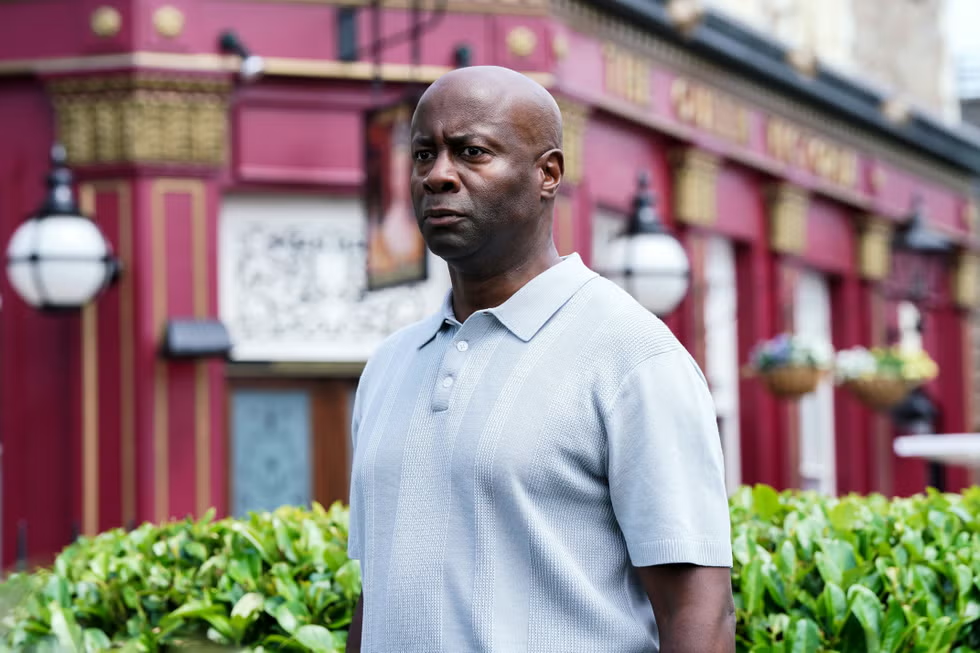LEGACY LIE EXPOSED! 🐎💥 Taylor Sheridan OBLITERATES the Classic Western Dream in Shocking Genre Flip!
For over a hundred years, the Western genre promised us one enduring fantasy: that land is legacy. That to own land was to matter, to endure, to pass something sacred to the next generation. It was mythmaking at its finest—cowboys riding through the open plains, staking their claim, and defending it with grit and a six-shooter. But Taylor Sheridan isn’t interested in myths. He’s burning them to the ground.
In Sheridan’s sprawling, interconnected universe—Yellowstone, 1883, 1923, and now Landman—land isn’t sacred. It’s leverage. It’s not a legacy passed down. It’s bait—used to ensnare, divide, and destroy families and fortunes alike. Gone are the days of stoic cowboys holding back emotion as they protect the ranch from faceless outlaws. Sheridan replaces them with talkers, trauma-bearers, and fractured souls who know one truth: land doesn’t save you. It owns you.

🐂 The Death of the Cowboy Myth
Let’s start with the cowboy himself. Once a paragon of silent strength, today’s Sheridan cowboy is a psychological minefield. Look at 1883‘s James Dutton: hard, silent, grieving. His pain is filtered through Elsa’s poetic narration as she chronicles her own slow, tragic demise. Or Spencer Dutton in 1923—a man forged by war, whose grief and rage boil just beneath the surface. John Dutton, patriarch of Yellowstone, is emotionally closed off yet haunted by every decision, every legacy he can’t hold onto.
And in Landman, the transformation reaches the modern frontier. Tommy Norris doesn’t just carry trauma; he broadcasts it, unfiltered and combustible. These men don’t ride in silence—they scream, collapse, unravel. In Sheridan’s West, silence doesn’t make you strong. It kills you.
💣 Land Isn’t a Birthright—It’s a Battleground
Western mythology always revered land as a kind of spiritual inheritance—noble, pure, enduring. Sheridan rips that apart. In his worlds, land is power. It’s the currency of the ruthless. In Yellowstone, the Duttons bleed and kill to hold on to their ranch, but no amount of sacrifice can stop corporate predators, greedy developers, and political maneuvering from circling like vultures.
In Landman, the metaphor goes literal. Oil rights trump bloodlines. Mineral contracts matter more than history. Whoever owns what’s under the ground wins. Family sacrifice means nothing in the face of billion-dollar interests. Legacy doesn’t stand up in court. And nostalgia? It doesn’t pay the bills.
The message is stark: land isn’t your story. It’s someone else’s business deal.
🧨 The Lone Hero Is Dead—Long Live the Flawed Collective
Forget the image of the lone cowboy wandering the desert with honor as his only compass. Sheridan demolishes that fantasy. His stories aren’t about rugged individuals triumphing against the odds. They’re about broken people colliding with each other, often painfully.
In Yellowstone, the Duttons are a dysfunctional empire. In Landman, oil executives, rig workers, and landowners form an unstable, combustive network of conflicting interests. Sheridan’s characters rarely ride alone—not because they don’t want to, but because they can’t. In his universe, lone wolves die early. Survival demands uncomfortable alliances, bitter compromises, and shared trauma.
Strength doesn’t come from solitude—it comes from enduring the mess together. And that mess is relentless.
⚖️ Cowboys vs Consequences: Goodbye Moral Simplicity
Old Westerns thrived on moral binaries: the good cowboy, the bad outlaw, the clear path to justice. But Sheridan thrives in ambiguity. His world is one of consequence, not clarity. You don’t get to shoot your way out of your problems anymore.
Take the Duttons. Every “noble” action they take to preserve their land—every threat, every manipulation—sets off a chain of events that poisons the next generation. In Landman, characters fight for oil leases, corporate deals, and control—but every decision has a cost. A moral reckoning is always coming. Sheridan’s West doesn’t offer redemption. It offers fallout.
🔒 The Frontier Is a Cage
Here’s Sheridan’s most devastating twist: the West, once a symbol of freedom, is now a prison. The wide-open frontier has become a suffocating trap. Characters chase freedom only to find themselves deeper in debt—to guilt, legacy, greed, and systems they can’t escape.
In Landman, the oil fields aren’t just physical spaces. They’re symbolic graveyards of freedom. Every deal ties the characters tighter to a world that’s indifferent to their sacrifice. The harder they fight for control, the more control they lose. The very myth of starting over, of building something pure, is exposed as a lie.
🪦 Legacy Doesn’t Remember You—It Replaces You
And that brings us back to the lie at the heart of the Western genre: that legacy is noble. That the land remembers your sacrifice. Sheridan says: no, it doesn’t. It forgets you. It replaces you. It exploits you.
In Sheridan’s West, legacy isn’t what you pass down—it’s what someone else will weaponize after you’re gone. That’s what makes his work so shattering. He doesn’t just rewrite the Western. He exposes its darkest truths: the heroes were never clean, the land was never safe, and silence never saved anyone.
🎬 Sheridan’s Brutal Clarity
What makes Taylor Sheridan’s Western saga so powerful isn’t just the action or the scenery—it’s the truth it forces us to face. The West was never about freedom. It was about leverage. About the lie that land would make you whole, when all it really did was make you vulnerable.
His characters don’t ride into sunsets. They stumble into the future—bloodied, burdened, but brutally honest. And that’s why Sheridan’s Westerns matter. They don’t romanticize. They reckon.
Because in this new Western order, no one rides clean. And the land doesn’t care who you were. Only what you’re worth.
🐎🔥💼





